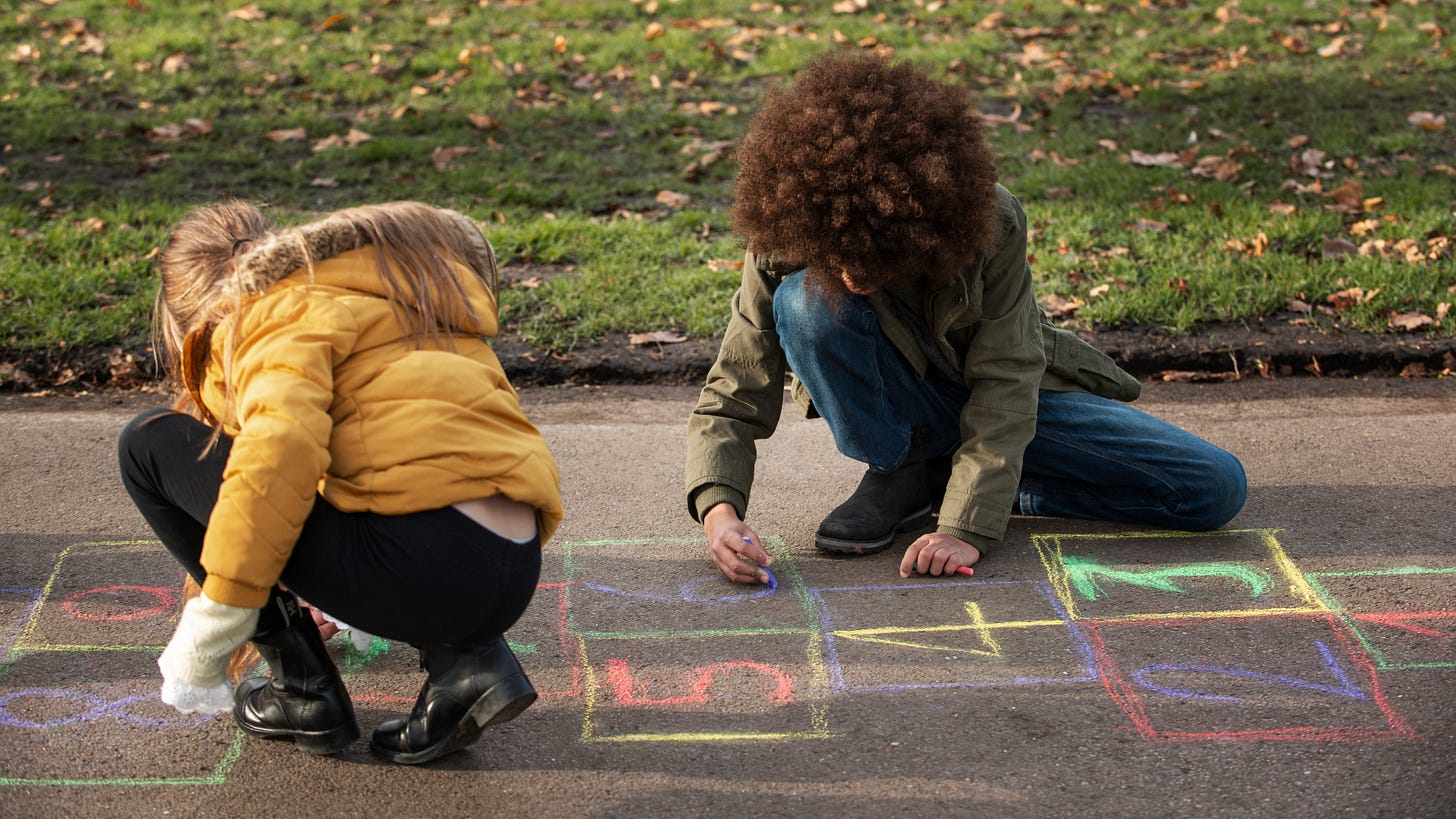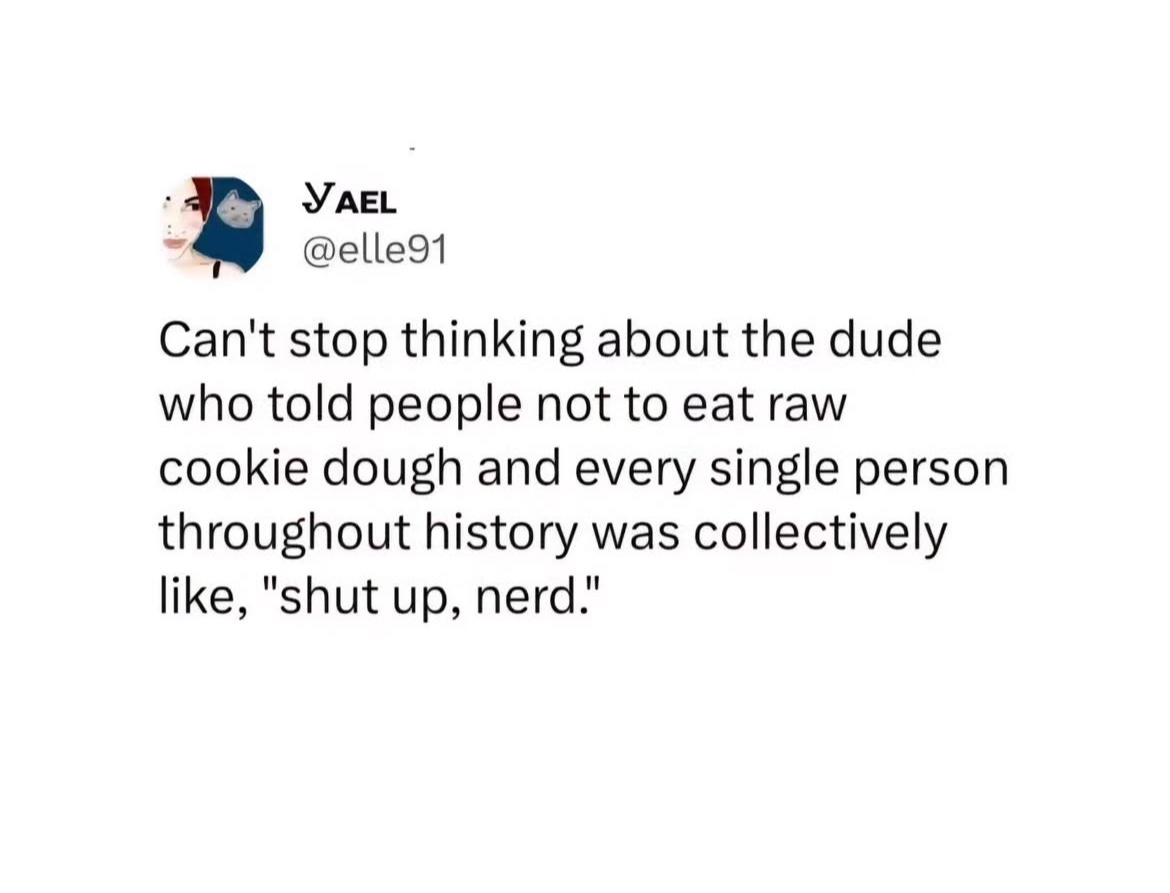Big Tech Didn’t Rewire Childhood — We Did. And We Can Reclaim It.
Newsletter #2: Community, independence, and nurturing both by leaning into life where we are.
Before we jump in…
I’m thrilled to announce that the podcast I’ve been thinking about for a year is finally happening. The basic idea is this: many of the people who design, build, or study technology are also parents… what do they do in their own homes, with their own kids?
A huge part of my professional and social networks are people who have spent their careers creating or studying the technologies that have become part of the social infrastructure that we now are raising our kids in. We talk a lot about tech in our homes and lives and I often walk away thinking “man I wish I had recorded that because [insert friends name] is struggling with exactly that question.” So I’ve decided to have more of these conversations, but this time record and share them.
Maybe it will be interesting to people, or maybe it won’t and I’ll just have a good time talking to myself and screaming into the void. But I’m doing it. (Manifesting, etc. etc.)
So with that, here’s the first episode, featuring Deepti Doshi, Co-Director of New _ Public. It is fitting that Deepti kicks us off because throughout her career she has focused on building community and social trust — two things that shape how we show up in the world, and how we engage with technology.
Ok, on to this week’s post.
Last year the Surgeon General issued a “general advisory” about “parental stress.” He said that “… 48% of parents - nearly half of them - say that most days, they feel completely overwhelmed by stress…” and goes on to say that “[t]his has really important implications for the mental health of parents, which we now know, in turn, affects the mental health of kids.”
As a parent of 3 young kids, struggling with my own mental health and wrestling with the realities of loneliness in America, that rang painfully true. But something about it bothered me, so much that apparently I’m still thinking about it. He went on to suggest policies that could make a difference: paid leave, affordable childcare, and access to mental health care — all policies that would be valuable, but that bothered me even more. The whole thing seemed well-intentioned but hollow… devoid of understanding or meaning.
The truth is that even those (like myself and my peers) who are lucky enough to have paid leave, who can afford childcare, and who can access mental health care STILL struggle with stress, anxiety, and loneliness. The absence of things like paid leave, childcare, and mental health services makes it all worst, but something else is going on that runs far deeper than the symptoms policymakers are focused on.
I know they are just trying to help, but it got under my skin because it treats parenting as a transaction or a commodity, just like we treat everything else in today’s America — something that can be quantified and datafied and distributed.
Sure, parenting is a job of sorts, and just as any job it requires resources, both monetary and human. But it’s not really a “job” — it’s a highly complex and intimate life-long relationship. In the U.S., the role of community is often described as a “support system,” the implication being that what it provides the parent is tangible help. But of course a huge part of the value of community is intangible. It’s emotional support, it’s feeling seen, it’s belonging and connection, it’s running into familiar faces and having a quick 5 minute conversation at the store, or in the parking lot, or at your mailbox. It’s hard to put your finger on because what makes community so central to our species is the intangible inefficiencies / complexities / depth of human interactions and relationships. We continue saying parents need “support systems” when in fact what they need is connection.
Deepti Doshi, co-director of New_ Public, and my guest this week, recently wrote about a moment at her son’s ninth birthday party that captures what we’ve lost. A group of thirteen boys headed to the field to play. One boy, Liam, came back. “My mom says I can’t go unsupervised,” he said.
Liam’s mother is Deepti’s friend. She’s not trying to punish her son — she’s just scared. She sees terrifying screenshots from Instagram and Nextdoor showing missing children, crimes, and all sorts of dangers. Yet, as Deepti points out, “what she’s seeing is not actually our lived experience.” Their neighborhood is safe. But Nextdoor’s algorithm surfaces isolated incidents from miles away and “makes anywhere seem dangerous.”
“If you don’t know your neighbors, everyone on the block is a stranger and potential threat. Kids like Liam stay inside to play video games, and when they get older, scroll social media. They become the data points of our loneliness epidemic.”
The platforms marketed as solutions (like Nextdoor) often make things worse. They’re in the business of engagement, and engagement is driven by fear. As Deepti notes from her time as an executive at Facebook, “the incentives of these companies — to grow and drive engagement and sell ads — aren’t aligned with building the social cohesion and trust that parents and children need.”
In the rush to optimize childhood, we’ve isolated ourselves. We’ve replaced spontaneous neighborhood gatherings with scheduled playdates, and place-based groups with online parenting forums. In much of America, our social lives are no longer in physical proximity to our homes… our kids activities are not at the local park or rec center. No single entity did that to us — we slow-boiled into it.
It reminds me a lot of the conversation around technology and kids. The basic narrative is: big tech is rewiring kids brains! Which is true, but like most simple explanations for complex problems, it is incomplete. The truth is that big tech didn’t do this — we did. We allowed this to happen, and even enabled it. And when I say “we” I mean the collective We: the people who design and create the products, investors that finance and incentivize them, the media that covers and hypes them up, parents who use them as babysitters because in a pinch an ipad is really helpful and how the hell else are we supposed to get everything done, and governments who have given a hall pass to an entire industry to develop garbage technology that atrophies our brains and divides our communities.
We continue to focus “solutions” on what we can see (which are the symptoms) instead of ripping out the roots of the problem because it feels insurmountable. We forget that these products all need us (and our data, and our time, and our attention) far more than we need them. We forget our power. Let’s reclaim it, and invest our time in the spaces and people around us.
More on this topic
Deepti’s post on After Babel about how algorithms distort our perception of where we live.
A thoughtful and uplifting LinkedIn post by Deepti about how her son is being affected by his classmate’s YouTube feed, and how we can create and build spaces that operate differently.
Anne Helen Peterson’s thought-provoking post on how parents model community-building and friendship. It led me to think how much I absorbed from my very big-fat-Greek-wedding-style community, and how hard that is for us to replicate for our own kids today.
danah boyd’s piece on the distinction between risks and harms. I’ve read this no less than 5 times, and I find it to be one of the most helpful mental models for thinking about how parents can help kids navigate current and emerging (digital) technology. For those of you wondering how to help your kids / prepare them for the internet / what muscles to build / etc… this is a must-read.
Source: Image by freepik
Stray thoughts
Americans are rediscovering ways of living that have existed for pretty much all of human history, and give them snappy new names as if they are innovations. I recently heard the term “aging in place” in reference to a “trend” in elder care, and it made me laugh because THAT IS WHAT PEOPLE DID FOR ALL OF HUMAN HISTORY. “Co-parenting” is another fun new term for describing BEING IN THE SAME PLACE AS FRIENDS WITH KIDS. These things existed for all of human history, but America blew them up for … reasons … and now we want them back and are giving them fun new names like coparenting. GTFOH.
Google is prompting kids to use its chatbots inside of the Chrome browser… Earlier this week I was helping my kids do their first ever research project, and made the mistake of doing research online. A prompt popped up *multiple* times for “help with homework.” My kids asked what it was and I said something to the effect of “Google wants you to think you can’t learn without them so they can make more money.” I closed it, but pretty sure I’ll be diving into this in the next few weeks.
I know I said this last time too, but I can’t stop thinking about it…. Chatbots are psychopathic abusers. I did a post about it too.




